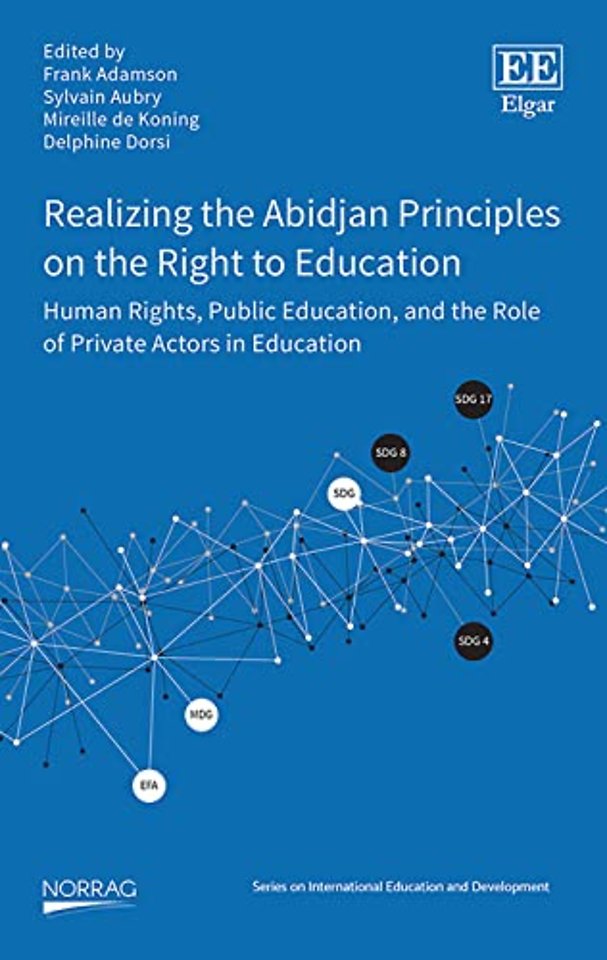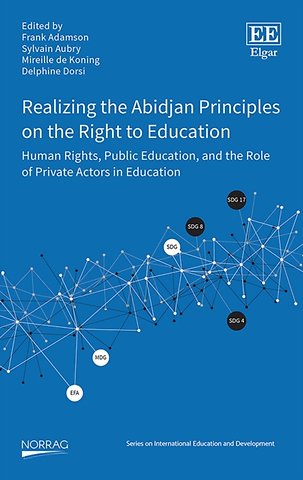Realizing the Abidjan Principles on the Right to Education
Human Rights, Public Education, and the Role of Private Actors in Education
Samenvatting
This insightful book analyses the process of the first adoption of guiding human rights principles for education, the Abidjan Principles. It explains the development of the Abidjan Principles, including their articulation of the right to education, the state obligation to provide quality public education, and the role of private actors in education.
Multidisciplinary in approach, both legal and education scholars address key issues on the right to education, including parental rights in education, the impact of school choice, and evidence about inequities arising from private involvement in education at the global level.
Focusing on East African and francophone countries, as well as the global level, chapters explore the role and impact of private actors and privatization in education. The book concludes by calling for the rights outlined in the Abidjan Principles not to remain locked in text, but for states to take responsibility and be held to account for delivering them, as promised in international human rights treaties.
Interpreting human rights law as requiring that states provide a quality public education, this book will be a valuable resource for academics and students of education policy, human rights, and education law. It will also be beneficial for policy makers, practitioners, and advocacy groups working on the right to education.
Specificaties
Inhoudsopgave
Sylvain Aubry, Mireille de Koning, and Frank Adamson
PART I THE CONTOURS OF THE HUMAN RIGHT TO EDUCATION
2 Human rights guiding principles: A forward-looking retrospective 25
Magdalena Sepúlveda Carmona
3 Is there a right to public education? 52
Jacqueline Mowbray
4 Parental rights in education under international law: nature and scope 79
Roman Zinigrad
5 State funding of private education: the role of human rights 104
Sandra Fredman
PART II WHAT EDUCATION RESEARCH REVEALS
6 Evidence on school choice and the human right to education 132
Joanna Härmä
7 How and why policy design matters: understanding the diverging effects of public–private
partnerships in education 157
Antoni Verger, Mauro C. Moschetti, and Clara Fontdevila
8 The growth of private actors in education in East Africa 189
Linda Oduor-Noah
9 The evolution and forms of education privatisation within francophone countries 220
Marie-France Lange
10 Synthesizing the research to strengthen the implementation of the Abidjan Principles 244
Frank Adamson, Delphine Dorsi, and Magdalena Sepúlveda Carmona
Annex: the Abidjan Principles Process and the ten Overarching Principles 263
Index









